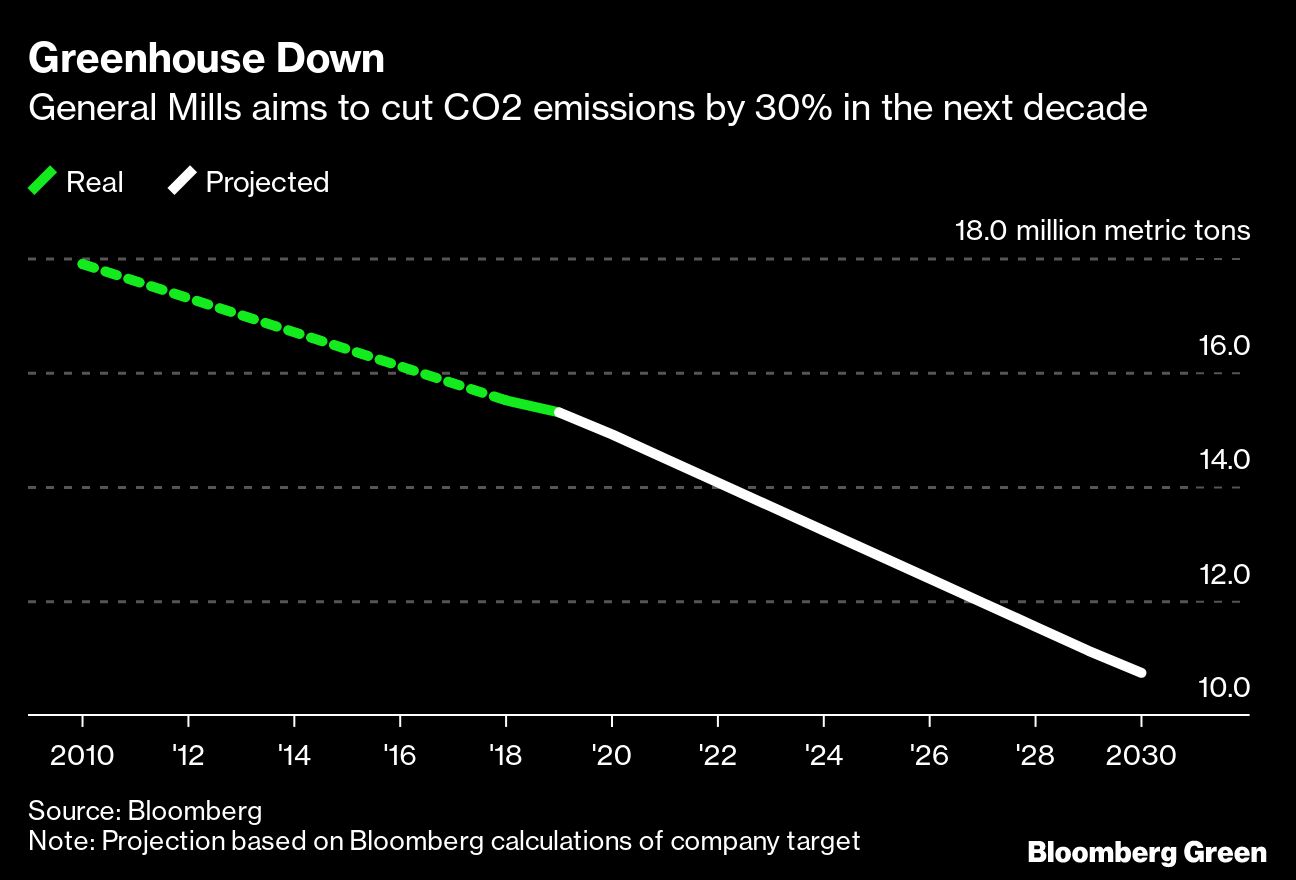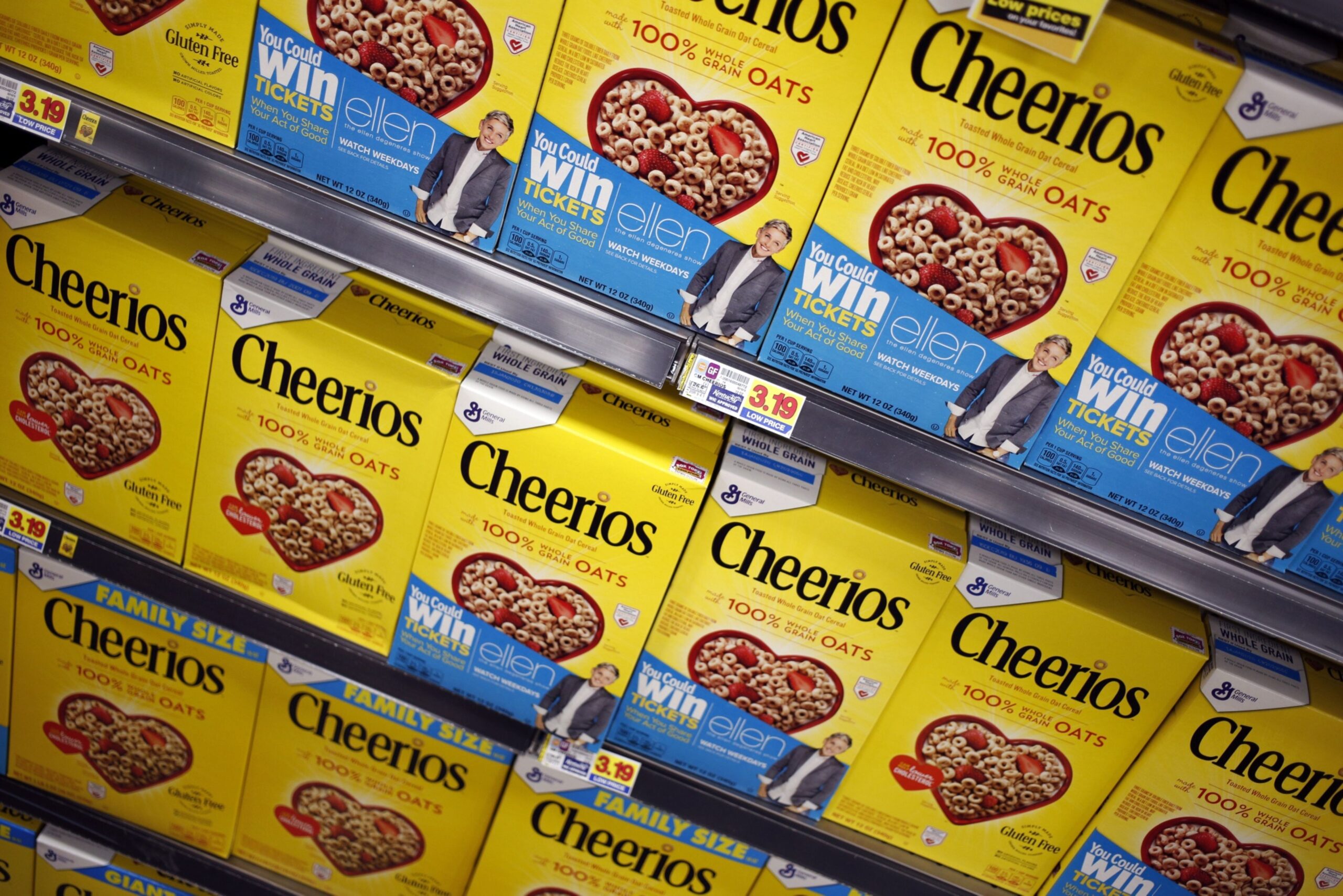(Bloomberg) —
American food giant General Mills said it plans to reduce greenhouse gas emissions by 30% in the next decade across the entire life of its products, aiming to reach net-zero emissions by 2050.
The maker of Cheerios, Haagen-Dazs and Annie’s will seek to reach the goal through improved agricultural practices, reduced packaging, and halving food loss and waste by 2030.
“While our greatest impact is outside our four walls – in agriculture, ingredients and packaging – we know we have a role to play in helping to restore planetary health,” said Mary Jane Melendez, the company’s chief sustainability officer. General Mills wants to cut emissions produced “from farm to fork to landfill,” it said in a statement.
The company’s annual emissions in 2019 stood at 15.3 million metric tons, about 1.3% decline from 2018. Direct emissions produced by burning natural gas in buildings or using fossil fuel-based power, known as Scope 1 and 2, make up 5% of its total. That means the vast majority of cuts needed to reach its climate goals will have to come from so-called Scope 3 emissions tied to its suppliers and customers.

To tackle food waste, General Mills offers surplus to food banks or reuses it for animal feed or biogas production. In the twelve months to May, 4% of its production ended up as food waste, of which more than 90% was recycled or converted into energy.
The company is also promoting regenerative agriculture, an approach that aims to improve soil health and biodiversity. In January, General Mills launched a pilot program with farmers near a Kansas reservoir to improve water quality in the area, following other pilots in North Dakota, Saskatchewan and Manitoba. By 2030, the company seeks to have regenerative farming implemented across one million acres of farmland, a fifth of the total acreage it sources food from in North America.
The emissions target was approved by Science-Based Target Initiative, a group that helps companies align with the Paris climate agreement goals of keeping global average temperatures from rising above 1.5 degrees Celsius.
To contact the authors of this story:
Todd Gillespie in London at tgillespie30@bloomberg.net
Akshat Rathi in London at arathi39@bloomberg.net





